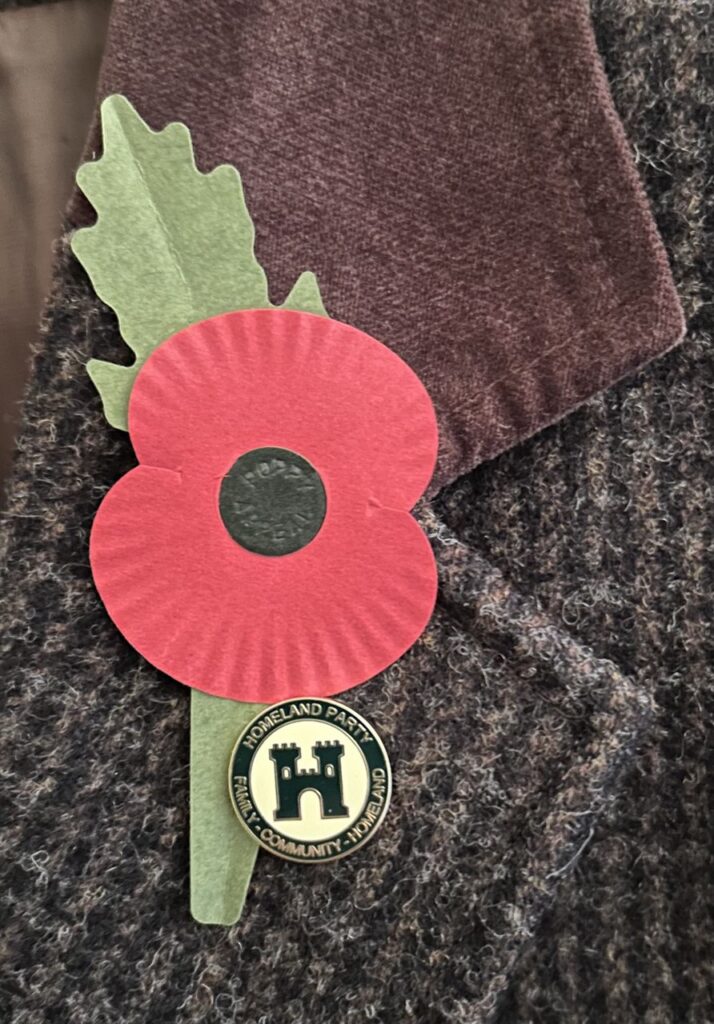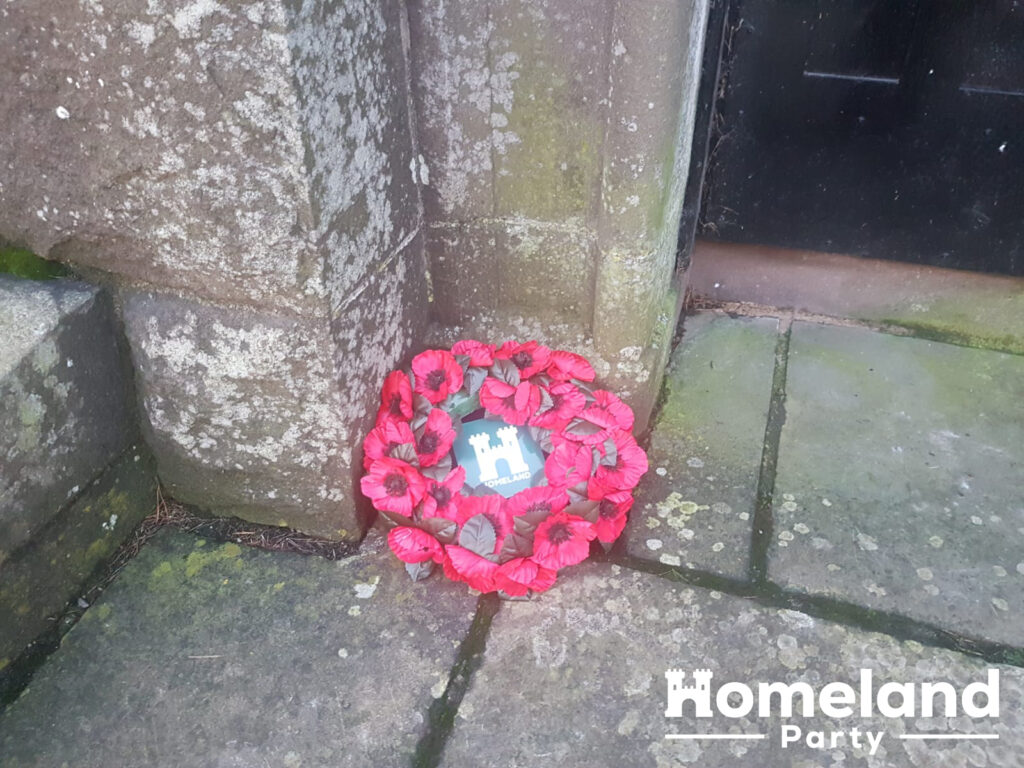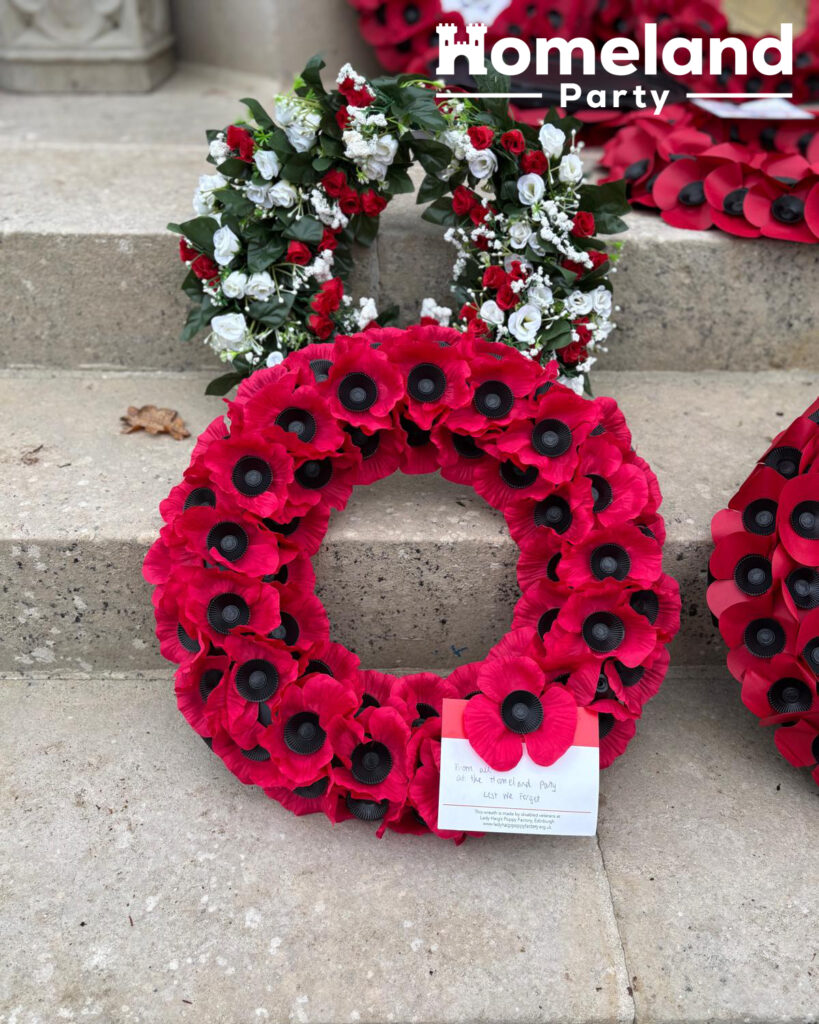The forthcoming weekend will see our people in cities, towns and villages across the nation taking part in services showing respect and commemorating those who have served our nation in times of war, particularly those who made the ultimate sacrifice.
Members of the Homeland Party, including many veterans, will attend these important services of remembrance and continue to do so year after year. The mass parades of previous years are now very much reduced as Second World War veterans become fewer and fewer, and those still with us are too elderly and frail to take part. It is therefore incumbent on later generations, who may not have been as personally touched by war, to ensure that the sacrifices made by others are not forgotten.
Until recently, those wishing to show their respect and to remember ALL of those who fought, particularly those who died, have worn the traditional red poppy, understood to have been adopted because the first sign of life returning to the devastation of the battlefields of the First World War was the poppy. The poppy typically consists of two red paper petals on a green plastic stem, with a single green paper leaf, held together by a black plastic central boss and affixed to clothing with a pin. The poppies are produced at the Poppy Factory in Richmond by a team of around 50 primarily disabled former British military personnel. It was intended to bring all people together in a single commemorative effort, irrespective of other factors.
Sadly, there seems to be an increasing number who would rather the nation did not show such solidarity and would, it seems, be happier if the traditional services of remembrance no longer took place, or at least became diluted to introduce their own political or social agenda.
Some of these groups feel that a single commemoration for all is not enough, and to further their own political and social aims, have felt the need to introduce division into this unique and sacred event. As well as the traditional red poppy, we now have the black poppy worn by those as an anti-war protest, the Khadi poppy for those from the previously undivided nation of India, the purple poppy for animal victims, the white poppy for all casualties of war and of course, the rainbow poppy for the LGBTQ etc. community. On top of that, we have so-called celebrities and sportspeople who feel the need to make their own political statement (whatever that might be) by creating an issue out of whether to wear or not wear a poppy.
Another disruptive occurrence, which may be the start of many, has been reported from Liverpool, where a Remembrance Sunday parade, which has taken place in Upton, on the Wirral on Merseyside for around a hundred years, has been cancelled on health and safety grounds, although a simple wreath-laying event will actually take place. Despite local veterans and the British Legion appealing to the local council and the police, they have been told that the car-ramming attack during the May victory parade for Liverpool FC’s Premier League success gave good cause for the decision. It is interesting to note that in August, a Slavery Day Remembrance walk through the streets of Liverpool did take place. Presumably, there were no safety fears when it was agreed that this should go ahead.
The Homeland Party are determined to continue our support for our remembrance tradition, knowing the sacrifices that our people have made at times of war – WE WILL REMEMBER THEM!



